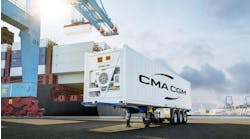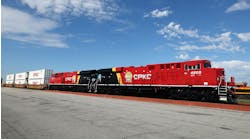www.tli.gatech.eduFailure to use technology creates roadblock for most trucking fleets
Many private and dedicated truck fleets are failing to use technology despite the growing complexity of their operations, according to a survey by the Logistics Institute at Georgia Tech (TLI). The survey focused on transportation costs, how companies operate their fleets, and transportation planning methods.
“What is very clear from this survey is that the majority of companies, both with smaller trucking operations of under $10 million annually as well as much larger operations exceeding $100 million, continue to plan truck routing and loading manually with very limited use of available information and decision technologies,” said Harvey Donaldson, TLI director. “The Transportation and Logistics Survey results indicate that while respondents foresee substantial cost savings opportunities from improved transportation planning, they are reluctant to adopt available technologies because of concerns about the associated costs and complexity.”
Key findings from the survey indicate that nearly two-thirds (65%) of respondents indicated better planning could save their organization 6% to 30% in transportation costs.
More than half of the respondents said they currently use a manual process for route planning (72%), load building (72%), dispatching (65%), and tracking (61%). The remaining companies mostly use custom or commercial software.
The average satisfaction rating with current route planning, load building, dispatching, and tracking processes was below 7 on a scale of one to 10 (with 10 highest).
More than two-thirds of respondents considered software the ideal method for truck transportation planning for their organization (37% in-house or custom software and 31.5% customized commercial software).
Most respondents indicated that their organization's typical truck routes change either on a daily (45%) or weekly (20%) basis. More than half of the respondents (58%) said that less than 10% of their outbound loads generate backhaul revenue. Thirty-eight percent of respondents indicated that backhaul revenue was insignificant to their organization.
Respondents indicated that customer service and route efficiency and cost savings rank highest in importance among factors regarding transportation planning. Driver satisfaction and backhauls were of significantly less importance.
The top three constraints that could prevent implementing better transportation planning were complexity of environment (33%), organizational culture (29%), and overhead cost (24%).
For complete results of the survey, visit TLI's web site at www.tli.gatech.edu/resource/transsurvey.


